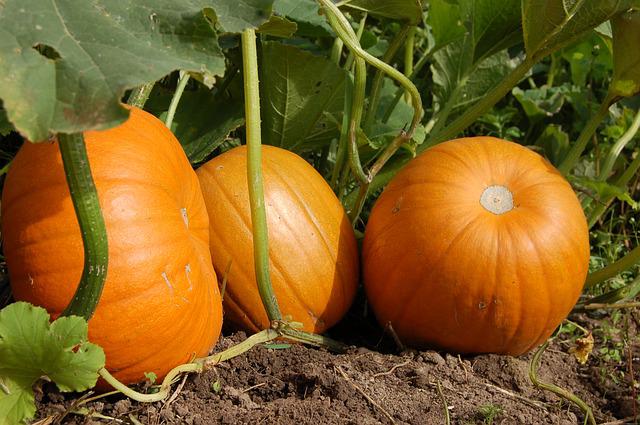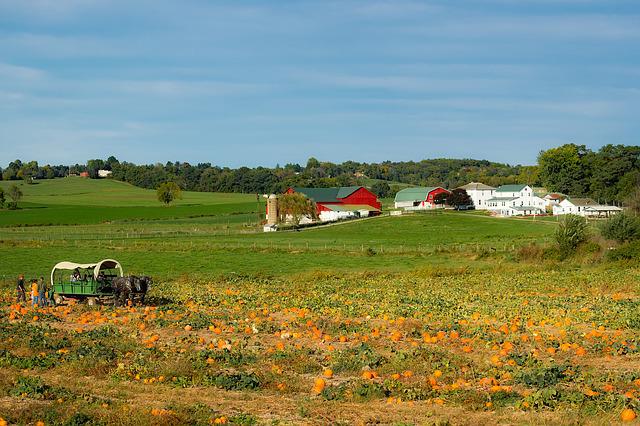Will Horses Eat Pumpkins? —Find Out the Health Benefits that Your Horse Can Get From Eating Pumpkins

Yes, horses will eat pumpkins. While it may not be the most popular thing to do around the farm, a pumpkin can provide nutritious food for your horse. Pumpkin seeds are an good source of protein, and essential oilseeds like hemp and flaxseed contain high vital nutrients such as vitamin E and magnesium. Pumpkin also contains significant amounts of dietary fiber, which is beneficial for digestion and preventing constipation. In short, all these factors make pumpkin a great choice as a portion of supplementary food for horses. However, don’t overdo it. Too much pumpkin can cause diarrhea or vomiting in your horse.
Table of Contents
Is It Bad for Horses To Eat Pumpkins?
There are risks associated with feeding a pumpkin to your horse. Large pumpkin pieces can present a choking hazard if fed to a horse. Always dice the pumpkin into small, palatable pieces before feeding it to your horse.
As with any novel food, never feed your horse excessive quantities of pumpkin. This can cause digestive distress. Never administer more than one cup of pumpkin per day to your horse.
Due to the high potassium content of the pumpkin, you should never feed this vegetable to a horse with HYPP.
Never feed your horse pumpkin that has become mushy, moldy, soft, or sagging. Additionally, never feed your horse a carved Halloween pumpkin. There may be candle wax or mold inside, which could be hazardous to your pet’s health.
How Much Pumpkin Can Your Horse Eat?
Pumpkin can be eaten and has a wide range of applications, but it should only be provided in small amounts like other treats and enrichment foods. When creating enrichment items or activities with pumpkins, your goal should encourage natural behaviors such as foraging and problem-solving.
Pumpkins can add a lot of flavor to a dish without being used in excessive amounts for them to be entertaining and rewarding. The pumpkin should be limited to one or two cups for most horses. You should speak with your veterinarian if your horse has any dietary sensitivities, such as equine metabolic syndrome.
Health Benefits
Your horse’s health can benefit from pumpkin consumption in several different ways.
In addition, pumpkins, both the flesh and the seeds, contain many vitamins and properties beneficial to the body. Many of these vitamins and properties are sold commercially as dietary supplements, such as:
- Carotenes are essential for proper eye and vision development and bone health.
- Fatty acids are essential components that are great for maintaining a healthy heart.
- Fiber is well known for its ability to aid in the digestive process.
- Calcium, copper, phosphorus, and potassium are all examples of minerals, and they are all part of important nutrients that the body needs to function properly.
- Vitamin A is beneficial to many-body systems, including the reproductive system, the eyes, and the bones.
- Vitamin E is an essential nutrient for muscle formation and the maintenance of average red blood cell production.
- Vitamin B3 is responsible for the creation of cellular and bodily energy.
- Vitamin B9 is essential for the synthesis of DNA and serves as an integral component in various other genetic materials.
Is There a Danger of Choking for Horses When Eating Pumpkin?

In most cases, horses do not tend to choke when eating pumpkin since it is a large chunk of vegetables and not fibrous. In small amounts, however, the possibility always lingers that your horse might develop some level of impaction or obstruction if he ingests too much at one time.
Although it can be challenging to diagnose an impaction from symptoms alone before the situation gets severe enough for surgery intervention, you should try.
Think about the possibility of choking if you give your horse pumpkin in smaller portions. For instance, slivers might be a better choice than cubes. If you will let your horse play with a whole pumpkin, it is highly recommended that you remove the particularly tough stalk first.
Healthy Ways To Feed Pumpkin to Your Horse
- The pumpkin should be cut up into small pieces! Reduce the risk of choking by cutting the food into small, easily chewable pieces.
- If you feed your horse more than a cup or two of pumpkin each day, you risk giving him a stomachache. Limit the amount of pumpkin you feed him. This is true for virtually everything new that you introduce to your horse. Do your best to fight the temptation to throw some pumpkins into his enclosure so he can have a rollie-pollie snack.
- Pumpkin is generally considered safe for horses that suffer from metabolic conditions such as Cushing’s disease, Equine Metabolic Syndrome (EMS), Insulin Resistance, and PSSM, also known as the “tying up” condition. Even though pumpkin contains “sugars,” feeding your horse pumpkin in moderate amounts will not result in a sharp spike in the amount of glucose in its blood.
- Because of the high potassium content of pumpkins, you should not give your horse that has HYPP any pumpkin as a treat.
- Do not feed any pumpkin that begins to sag, become soft, or become mushy.
- Be wary of the interior of a carved pumpkin as well; there is a possibility that candle wax has leaked out or that mold has begun to grow.
- Other members of the pumpkin family, such as gourds, can also be harmful to horses. If you aren’t sure what kind of autumn treat you have, it’s probably best not to give it to your pet just in case.
- Pumpkin treats made with canned pumpkin or pumpkin baked into a pie may contain a higher amount of sugar.
